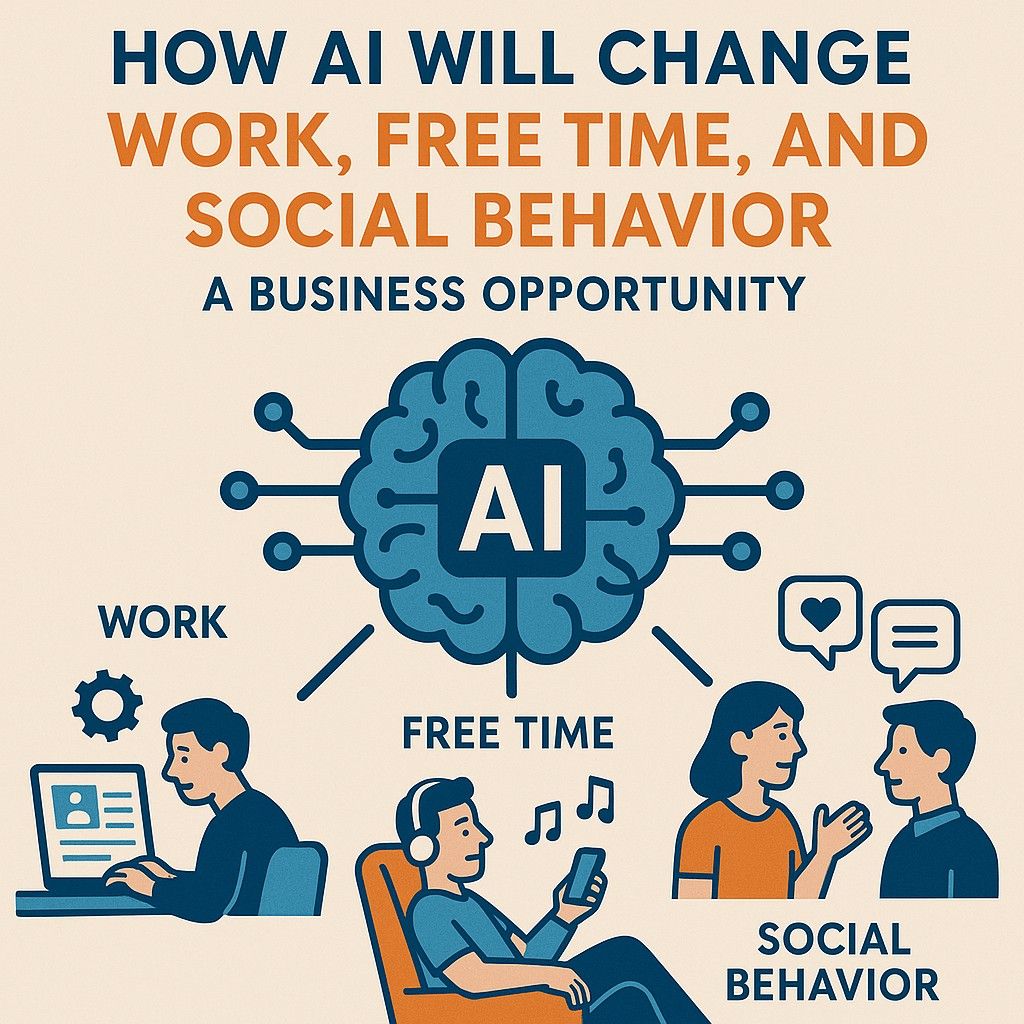How AI Will Change Work, Free Time, and Social Behavior: A Business Opportunity

The rapid development of artificial intelligence is not only transforming business processes but also reshaping the very structure of society. As AI systems take over repetitive and knowledge-based tasks, many roles that define employment today will no longer be needed in the near future. This shift will fundamentally change human behavior and priorities, creating new demands for how people spend their time.
The Future of Work and AI
For decades, technological progress has redefined work, moving people from manual labor to knowledge-based industries. However, with the rise of AI systems capable of analysis, decision-making, and even creativity, entire sectors will be automated. This will lead to a society where traditional work is no longer the central activity for large parts of the population.
While this may sound like a dystopian scenario, it is important to consider the opportunities emerging from this transition. As work becomes less of a necessity for income generation, the demand for activities that provide purpose, competition, and self-fulfillment will increase.
Free Time Will No Longer Be "Free"
Historically, free time was a reward for productivity. In a future where AI manages most production, people will have more hours to fill, but the need to find meaning, structure, and achievement will remain.
This will lead to a growing market for structured leisure activities, competitive environments, and personal development programs. The gaming industry, online competitive platforms, and virtual reality arenas will experience significant growth, providing structured environments where people can compete, train, and develop mastery in various areas.
From Work to Training for Competition
In the future, instead of working to earn money, people may spend a significant part of their time training to succeed in various competitions, both physical and digital. Competitive frameworks can replace the motivational structures that traditional employment provides, preventing societal stagnation or conflict that could emerge from unstructured free time.
The desire for achievement, recognition, and social status will remain a strong motivator, and new ecosystems will emerge to meet these needs in the form of organized competitions, gamified learning environments, and structured leisure activities.
Business Implications
For companies in the technology and IT sectors, these changes represent a significant business opportunity. Developing platforms and ecosystems that enable structured leisure, skill development, and competitive engagement will be a high-growth market. Key areas of potential include:
- AI-enhanced competitive platforms that match individuals of similar skill levels and monitor progress.
- Virtual and augmented reality environments for personal development, sports, and training.
- Digital wellness and productivity tools for individuals seeking mastery in specific skills or activities.
- AI-driven personalized training systems that support individuals in competitive environments, from e-sports to intellectual competitions.
As AI continues to advance, the focus for businesses should not be solely on replacing human labor but on creating value in how people will spend their time when traditional work is no longer central.
Conclusion
Artificial intelligence is redefining the future of work and social behavior, shifting the focus from employment for income to structured activities for purpose and achievement. Businesses that recognize and address the demand for competitive and meaningful leisure will be well-positioned in this new landscape.
As we prepare for a future where AI handles many of our current responsibilities, the question is not only how work will change but also how society will transform the concept of free time. For forward-looking technology companies, investing in platforms and services that cater to this shift will be a strategic move in the AI-powered future.
Author: Trixit team & ChatGPT
Picture: https://chatgpt.com/

Prague office3rd floor, Drtinova 467/2a,
Prague 5, 150 00,
Czech Republic
